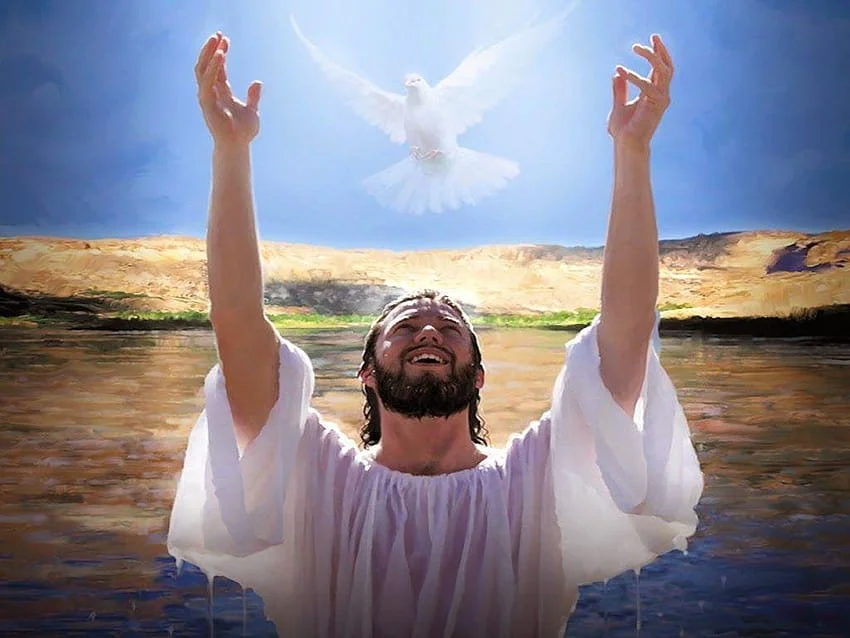Ruth: O What a Foretaste—Ruth 4: 1-6, 11=17; I Peter 1: 1-7
One of the greatest lessons in life is that God will make a way for us, even when we cannot see the way forward. Let me give you a little example. I have a tremendous fear of heights, and I avoid anything where I might be looking over a ledge, near a suspended bridge, or anything like that. When I was in third grade, we had a small obstacle course for P.E., which we had to complete, and as part of it, we had to slide down the pole from the playground equipment. It was a pretty long pole, and I NEVER went down this. Ever. So that day I was incredibly nervous, panicked even, and didn’t expect to be able to do it.
As I got to the pole, I nearly blacked out and moved away from it unable to even go near. Suddenly I felt the teacher come up behind me, and he said, “It’s fine, there’s a slide as well, so there’s another way.” I gave a quick “Thank you, Lord, for making another way!” and went down the slide. Sometimes we have to sit back and appreciate that God’s grace for us is truly amazing. That’s what God’s grace does for us—it finds God way, keeps us safe, and eventually sees us through to our reward.
First we see that grace finds God’s way in this world. We read in Ruth how Naomi endured struggle including her husband and children’s deaths, returning home feeling like a failure, poor, and likely embarrassed. She was the object of pity of the other women in the town. But in the end, God redeemed her. The women of the town said, “Praise the Lord who has now provided a redeemer for your family! May [this child] restore your youth and care for you in your old age.” God restored her family and her personally from her devastation. And we see that God is in the business of restoration.
God restored Job after all he had was taken from him by Satan. God restored Abraham after leaving his home country making him the father of many generations. God restored the Israelite people after their slavery in Egypt and after their exile in Babylon. Our God is in the business of building back and restoring what is lost and broken. In I Peter 1:6 we read, “So be truly glad. There is wonderful joy ahead even though you must endure many trials for a little while.” Naomi and Ruth endured more than a decade of sorrow before they were restored and found joy ahead. But God will deliver joy to us, and there is always hope in the end with God. We have to trust that God has made a way, and that we will be safe when we follow God’s way.
Next, God’s grace reminds us that we are safe. Boaz, we read, went out of his way to protect Ruth and Naomi. He kept Ruth safe in the field. He made sure they had plenty of grain and provisions. He worked it out so that they had a family redeemer. Finally he even remembered to send Ruth home to Naomi with plenty of food after they talked on the threshing floor. And here we read that Boaz went even further. He gave Ruth a home, a new family after she left hers, and he gave her love, and security. He married her with the promise that she would not be the foreigner and outcast, nor would Naomi be the foolish and scorned elderly widow. Boaz loved, cared for, and kept them safe in every way.
I Peter reminds us, “and through your faith, God is protecting you by his power until you receive this salvation, which is ready to be revealed on the last day for all to see.” I think, ultimately, that is our greatest concern about the future. Once we get done worrying about the whole “what’s next?” part, we wonder whether or not we will be okay. Especially now with all going on around us we ask this question. There’s a tremendous amount of fear over the pandemic. There’s worry over the upcoming election no matter what side you’re on. We ask, “Have we lost all sense of normalcy…have we lost life as we know it?” But the biggest fear is in the midst of all this struggle, will we be safe and okay?
There’s an old hymn which answers that question. It says, “Trials dark on every hand, and we cannot understand all the ways that God would lead us to the blessed promised land.” And it wraps up with these words, “But we’ll understand it better by and by.” God has already answered this question for us. Yes, we may suffer, and yes, we may endure trials and pain, but God is still protecting us. Don’t mistake a trial in life (or many) for God’s abandonment. While God does allow our trials to come, God will never, never abandon us.
Finally, we know that grace will lead us home. Ruth found a home and family with Boaz. Naomi found her redemption and restoration in a child which carried on the family legacy. Through much of this Naomi is very miserable and bitter in her attitude. I wonder sometimes how frustrated God got with her. She left her homeland (the promised land) for something better. She often lacked a trust in God. She never seems to soften until God actually gives everything she wants. But she had God’s grace in front of her the whole time. The women of the town say about this new-born child, “for he is the son of your daughter-in-law who loves you and has been better to you than seven sons!” I often wonder if Naomi stopped sometimes to appreciate the level of God’s grace and love that was present with her in Ruth and Ruth’s love for her.
But there’s more at work here. The child was named Obed, and his son was Jesse, and his son was King David in whose family line Jesus was born. Not only did Ruth find a home and a new family, she also became the ancestor of Christ occupying a powerful place in the story of God’s grace and restoration of humankind. In I Peter we hear that our faith is more precious than gold, and that we have a priceless inheritance. I know some these days struggle with this other side of faith which deals with spiritual things, but at the end of the day, I have to believe that following Christ is more than a good philosophy. Yes, Christ’s way is a good way to live, but there’s so much hope built into these teachings that it begs of us to believe that living lives of grace will give us a more eternal hope. Every single gospel writer talks about Jesus in terms of his role as both teacher and Savior. And, I think, when we are struggling, we need to remember that aspect of Christ as Savior and Redeemer in our lives.
There’s a song which speaks to us in our darkest hour and most difficult test. It says this, “God will make a way when there seems to be no way. He works in ways we cannot see; he will make a way for me. He will be my guide; hold me closely to his side with love and strength for each new day, he will make a way. God will make a way.” Our darkest hour is never so dark, our toughest trial is never so daunting, and that final hour of life is never so fearful when the light of Christ is with us. In all of life, there is one final word—God will make a way, through his amazing grace given to us.
Worship Video: https://www.facebook.com/fccmacon/videos/245839556387111





